Enteric viruses evoke broad host immune responses resembling those elicited by the bacterial microbiome
- PMID: 33894129
- PMCID: PMC8192460
- DOI: 10.1016/j.chom.2021.03.015
Enteric viruses evoke broad host immune responses resembling those elicited by the bacterial microbiome
Abstract
The contributions of the viral component of the microbiome-the virome-to the development of innate and adaptive immunity are largely unknown. Here, we systematically defined the host response in mice to a panel of eukaryotic enteric viruses representing six different families. Infections with most of these viruses were asymptomatic in the mice, the magnitude and duration of which was dependent on the microbiota. Flow cytometric and transcriptional profiling of mice mono-associated with these viruses unveiled general adaptations by the host, such as lymphocyte differentiation and IL-22 signatures in the intestine, as well as numerous viral-strain-specific responses that persisted. Comparison with a dataset derived from analogous bacterial mono-association in mice identified bacterial species that evoke an immune response comparable with the viruses we examined. These results expand an understanding of the immune space occupied by the enteric virome and underscore the importance of viral exposure events.
Keywords: enteric virome; host-virome relationship; regulation of the enteric immune system; virome; virus.
Copyright © 2021 Elsevier Inc. All rights reserved.
Conflict of interest statement
Declaration of interests K.C. has received research support from Pfizer, Takeda, Pacific Biosciences, and Abbvie. K.C. has also consulted for or received an honorarium from Puretech Health, Genentech, and Abbvie. K.C. holds U.S. patent 10,722,600 and provisional patent 62/935,035.
Figures
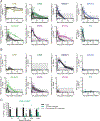
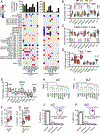
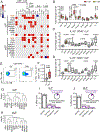
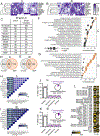
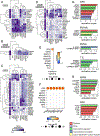
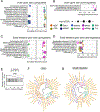
Comment in
-
Enteric viruses seize their immunomodulatory niche.Cell Host Microbe. 2021 Jun 9;29(6):858-861. doi: 10.1016/j.chom.2021.05.007. Cell Host Microbe. 2021. PMID: 34111394
References
-
- Axelrad JE, Olén O, Askling J, Lebwohl B, Khalili H, Sachs MC, and Ludvigsson JF (2019). Gastrointestinal Infection Increases Odds of Inflammatory Bowel Disease in a Nationwide Case-Control Study. Clinical Gastroenterology and Hepatology : The Official Clinical Practice Journal of the American Gastroenterological Association 17, 1311–1322.e7. - PubMed
Publication types
MeSH terms
Substances
Grants and funding
- P30 CA016087/CA/NCI NIH HHS/United States
- R01 DK093668/DK/NIDDK NIH HHS/United States
- T32 HL007751/HL/NHLBI NIH HHS/United States
- S10 OD018338/OD/NIH HHS/United States
- F31 DK108562/DK/NIDDK NIH HHS/United States
- R01 AI140754/AI/NIAID NIH HHS/United States
- R01 AI130945/AI/NIAID NIH HHS/United States
- R01 AI038296/AI/NIAID NIH HHS/United States
- R01 AI121244/AI/NIAID NIH HHS/United States
- R37 AI038296/AI/NIAID NIH HHS/United States
- R01 DK098435/DK/NIDDK NIH HHS/United States
- R01 HL123340/HL/NHLBI NIH HHS/United States
- R01 AI137336/AI/NIAID NIH HHS/United States
- S10 OD010580/OD/NIH HHS/United States
LinkOut - more resources
Full Text Sources
Molecular Biology Databases

